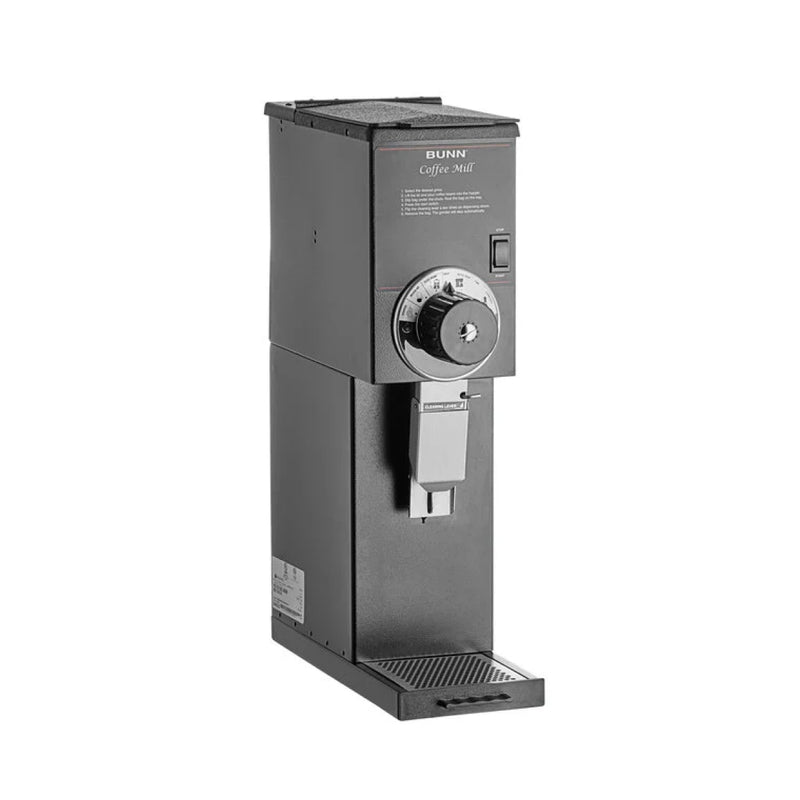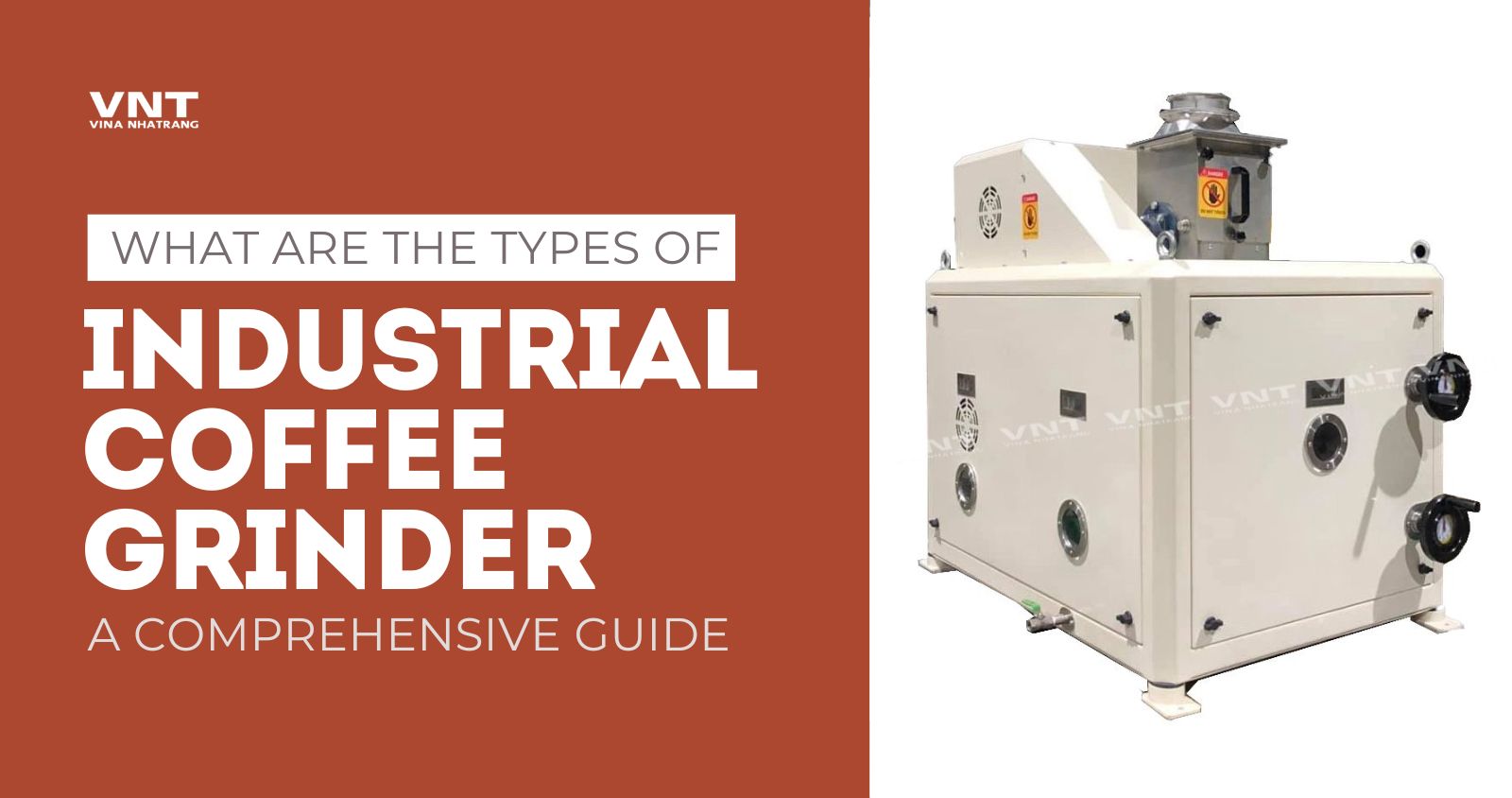How to Pick the Perfect Industrial Coffee Mill for Your Organization
Choosing the optimal commercial coffee grinder for your organization is a multifaceted choice that needs mindful consideration of numerous vital elements. It is necessary to review your particular grinding demands, including the volume of coffee refined and the preferred work uniformity, as these components directly affect flavor and client fulfillment. Additionally, comprehending the numerous sorts of grinders offered can significantly influence your functional performance. As you navigate these factors to consider, one must additionally weigh the ramifications of spending plan and maintenance. What other aspects could make or damage your choice?
Assess Your Grinding Requirements
When choosing an industrial coffee mill, one have to initially analyze their grinding needs to ensure optimal performance and consistency. This preliminary examination entails recognizing the quantity of coffee to be refined daily, along with the wanted work dimension for different brewing techniques. A high-capacity grinder may be necessary for companies offering huge amounts of coffee, while smaller sized procedures may discover a more compact model adequate.
Additionally, it is vital to think about the types of coffee beans being used, as various beans might need particular grinding techniques to attain the most effective flavor profile. For instance, oily beans could require a grinder designed to deal with such qualities without overheating or clumping.
Specialized coffee organizations frequently require specific work sizes to improve extraction and taste, making it essential to choose a grinder that can provide consistent outcomes. Reviewing the offered area and electric needs will certainly aid in choosing a mill that fits seamlessly into your operational process.
Understand Grinder Types
Understanding the various kinds of industrial coffee grinders is critical for making an informed choice that satisfies certain operational requirements. There are primarily two categories of mills: blade mills and burr mills.
Blade mills use spinning blades to slice the coffee beans, causing an inconsistent work dimension - Industrial Coffee Grinder. While they might be extra cost effective, they are commonly not suitable for industrial applications where precision is important
On the other hand, burr grinders give a more uniform work by squashing the beans in between two surfaces. They can be more classified right into level burr and conelike burr grinders. Apartment burr mills supply a regular work size and are usually favored for coffee prep work, while conical burr grinders are flexible and can deal with a series of mixture approaches, from coffee to French press.
When picking a grinder, consider the specific demands of your organization, consisting of desired grind consistency, manufacturing quantity, and the kinds of coffee drinks you intend to supply - Industrial Coffee Grinder. Each mill type has its benefits and limitations, so understanding these subtleties enables educated decision-making that aligns with functional goals
Evaluate Work Size Uniformity
Accomplishing grind dimension consistency is important for generating top notch coffee, as variations in fragment size can considerably influence extraction and taste. When selecting a commercial coffee mill, it is important to review exactly how well the device keeps uniformity in grind dimension across various sets. Irregular grind dimensions can lead to irregular extraction, leading to a mug that may taste weak or overly bitter.
To assess work dimension consistency, think about mills with features such as adjustable work settings and high-grade burrs. Burr grinders, specifically, succeed in producing uniform bit sizes compared to blade mills. The product and shape of the burrs play an important duty, with stainless-steel and ceramic options offering longevity and precision.

Think About Production Capability
In more info here the hectic world of coffee production, thinking about manufacturing ability is extremely important for businesses aiming to meet need without compromising high quality. The manufacturing capacity of a commercial coffee grinder directly affects a company's capacity to accomplish orders successfully, take care of supply, and react to changing market trends.
When examining production capacity, it is important to assess the grinder's result price, Click This Link typically gauged in pounds per hour. This measurement should align with your organization's forecasted sales volume and growth targets. A coffee shop with a high turnover might need a grinder that can refine several hundred pounds daily, while a smaller sized operation could be sufficient with a lower capability version.
Furthermore, take into consideration the sort of coffee being processed. Various beans and blends may influence grinding rate and efficiency, necessitating a mill with the ability of taking care of diverse manufacturing needs. It's additionally worth factoring in the mill's ability to keep consistent high quality under high outcome conditions, as any variations can affect the end product.
Eventually, picking a grinder that matches your organization's production capability will certainly ensure you stay responsive and affordable to consumer expectations.

Spending Plan and Maintenance Factors
When reviewing the best commercial coffee budget plan, upkeep and grinder factors play a substantial role in the general decision-making procedure. An initial investment in a high-grade mill can yield long-term benefits, but it's vital to establish a clear budget that straightens with your service's operational requirements. Take into consideration both their website the acquisition cost and possible functional expenses, such as power usage and replacement parts.
Industrial coffee grinders call for regular upkeep to ensure ideal efficiency and longevity. Evaluate the maker's recommendations for maintenance, consisting of cleaning timetables and parts replacement, as these will influence long-lasting functional costs.

Purchasing a grinder that is long lasting yet very easy to keep can conserve cash over time. While lower-priced options might be alluring, they may incur higher upkeep prices and minimized efficiency. Ultimately, balancing initial prices with long-lasting upkeep and operational efficiency will certainly guide you to the finest option for your business's coffee grinding needs.
Final Thought
Selecting the ideal commercial coffee grinder demands an extensive analysis of grinding demands, mill kinds, grind dimension consistency, manufacturing ability, and monetary considerations. By focusing on these variables, companies can make sure the purchase of a trustworthy, effective mill that fulfills details functional demands. An appropriate mill not only improves the high quality of the coffee generated but also contributes to the general success and profitability of the enterprise. Long-term performance and maintenance ease should stay main to the decision-making process.
Specialty coffee services frequently demand accurate grind dimensions to enhance extraction and flavor, making it crucial to pick a grinder that can supply uniform results. Flat burr mills provide a regular grind size and are commonly favored for espresso preparation, while conelike burr mills are functional and can handle a range of mixture techniques, from espresso to French press.
When picking a commercial coffee mill, it is essential to assess exactly how well the equipment keeps uniformity in grind size throughout various sets. Burr mills, in particular, stand out in producing consistent fragment sizes compared to blade grinders.Choosing the optimal industrial coffee mill demands a complete analysis of grinding needs, mill types, grind size uniformity, production capability, and budgetary considerations.